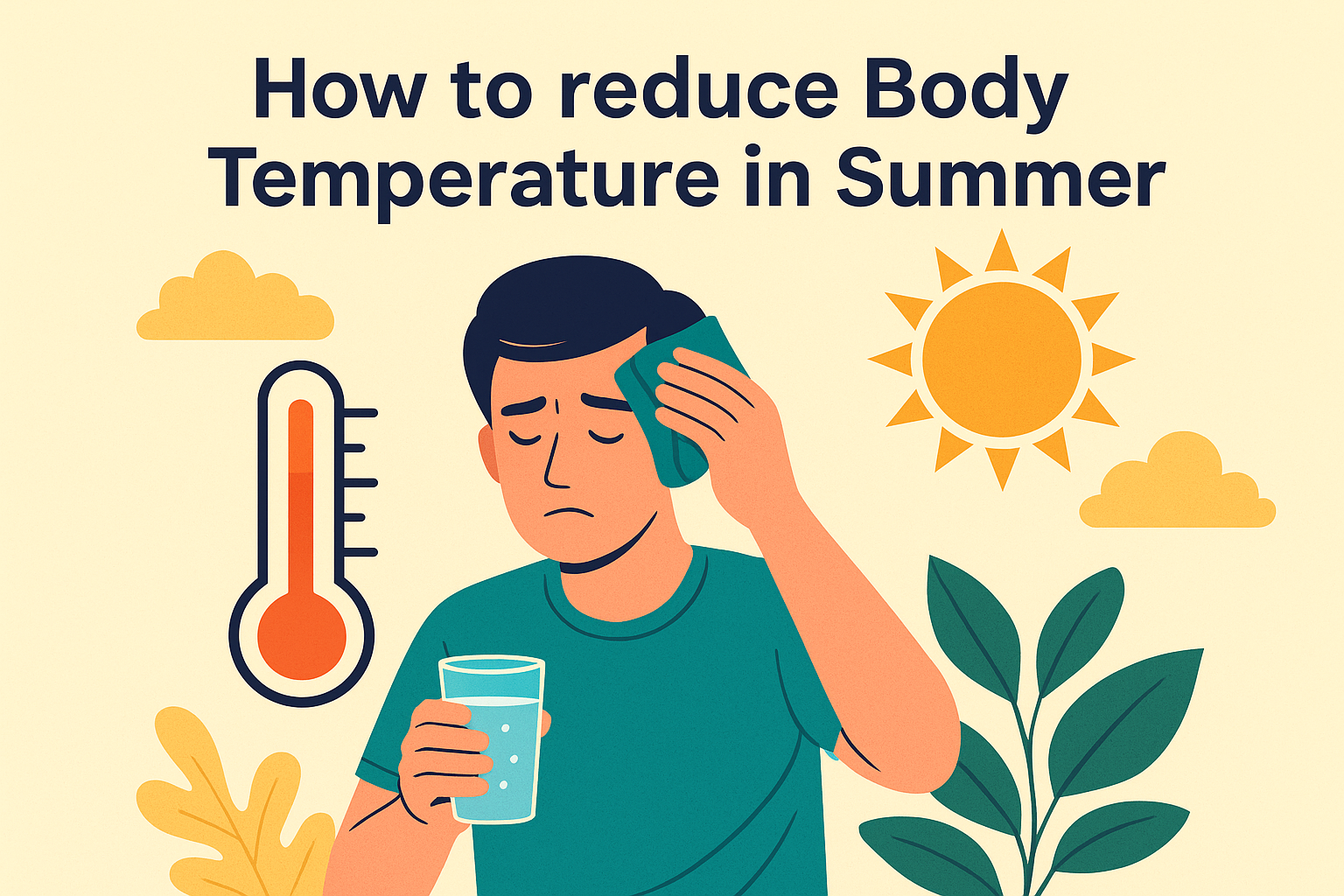Normal body temperature is believed to be approximately 98.6 degrees Fahrenheit (oF) or 37 degrees Celsius (oC) although it may fluctuate up to a range of 0.9oF (0.5oC) with the time of day. The reasons as to why the body temperature of a person can increase are quite numerous. These are diseases, drugs and strenuous exercise. A fever is normally signaled by a body temperature of above 100.4 o C (38 o C).
One needs not even go out on a very hot day, but being outside can be sufficient to experience heat exhaustion or heat stroke. The National Oceanic and Atmospheric Administration 2021 Annual Climate Report noted that over 150 years the cumulative land and sea temperature has been increasing at an average rate of 0.14 o F (0.08 o C) every decade. Extreme heat, specific foods or others may be the cause of heat stress. Summer is a fun season, an outdoor experience and rest. If you need more interested info like that visit quick guider.
How to reduce body heat
Normal body temperature is believed to be at about 98.6 degrees Fahrenheit (OF) or 37 degrees Celsius (OC) although this may differ by as much as 0.9oF (0.5oC) depending on the time of the day. It might be enough to be out on a day as hot as that and suffer a heat exhaustion or heat stroke. If you need info related How to Remove Strain From Car.
In order to cool the body, pay attention to the external cooling and internal hydration. This involves taking cool showers or baths, applying cold compresss, consuming cool liquids and being in cooler conditions.
How to Reduce Body Heat Quickly and Get Relief
Body temperature is used to gauge the capacity of body to produce and lose heat. Typically, your hypothalamus and autonomic nervous system maintain your body by a degree or two of your usual temperature. Extreme heat, some foods, or other reasons may cause heat stress. Excess body heat can be eliminated by drinking water, applying cold compresss to the skin, staying in the shade and wearing light clothing.
What are the signs of being overheated?
Physicians divide over exposure to heat into three degrees: heat cramps, heat exhaustion and heatstroke. The situation with heat exhaustion is that it is necessary to seek medical help when the symptoms persist even more than an hour or become more severe over time. Heatstroke is life threatening and must be taken to hospital.
The symptoms of developing heatstroke are elevated body temperature, confusion, and disorientation, mumbled speech, loss of consciousness and seizures, and shallow breathing.
Reasons body temperature may rise
There are various reasons that may make your body temperature increase. It is a thyroid condition called hyperthyroidism which means that your body is overproducing thyroid hormone. Severe physical activities may lead to rise in heat because active muscles and accompanying blood circulation activity generate a lot of heat. Body temperature may increase because of different causes, such as infection, inflammation, and environment.
Remedies To Reduce Body’s Temperature During Summer
Summer is a season of pleasure and outdoor games and rest. Nevertheless, the hot weather can at times be too much and uncomfortable and has some health effects like heat exhaustion and heatstroke. In order to be safe and cool on the sunny days, you need to know how to control your body temperature.
In order to lower the body temperature in summer, the main attention should be paid to staying hydrated, wearing lightweight clothes and finding shade or air condition.
Conclusion
